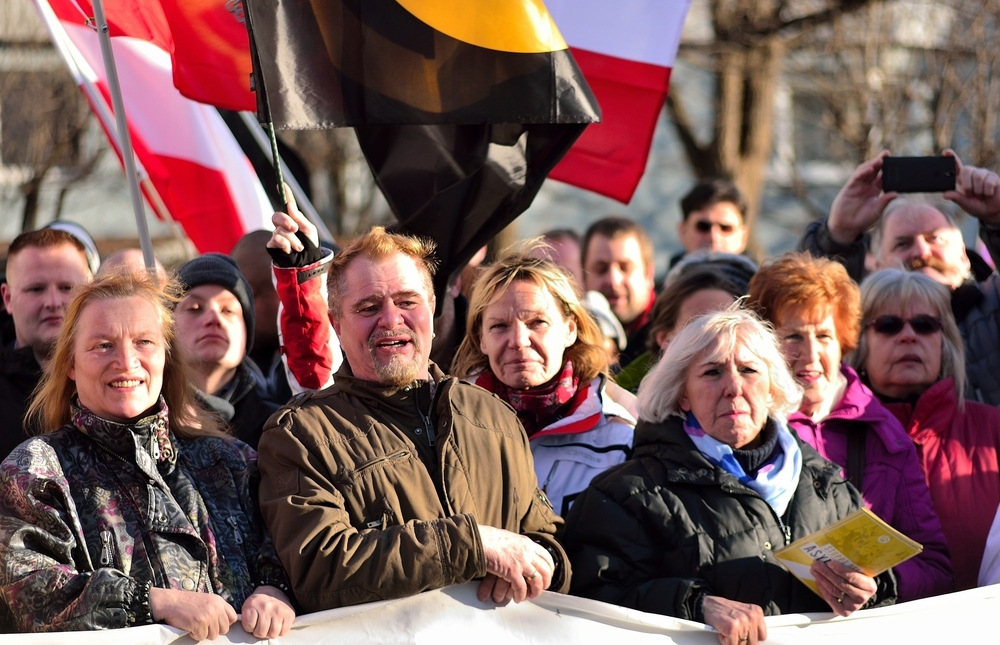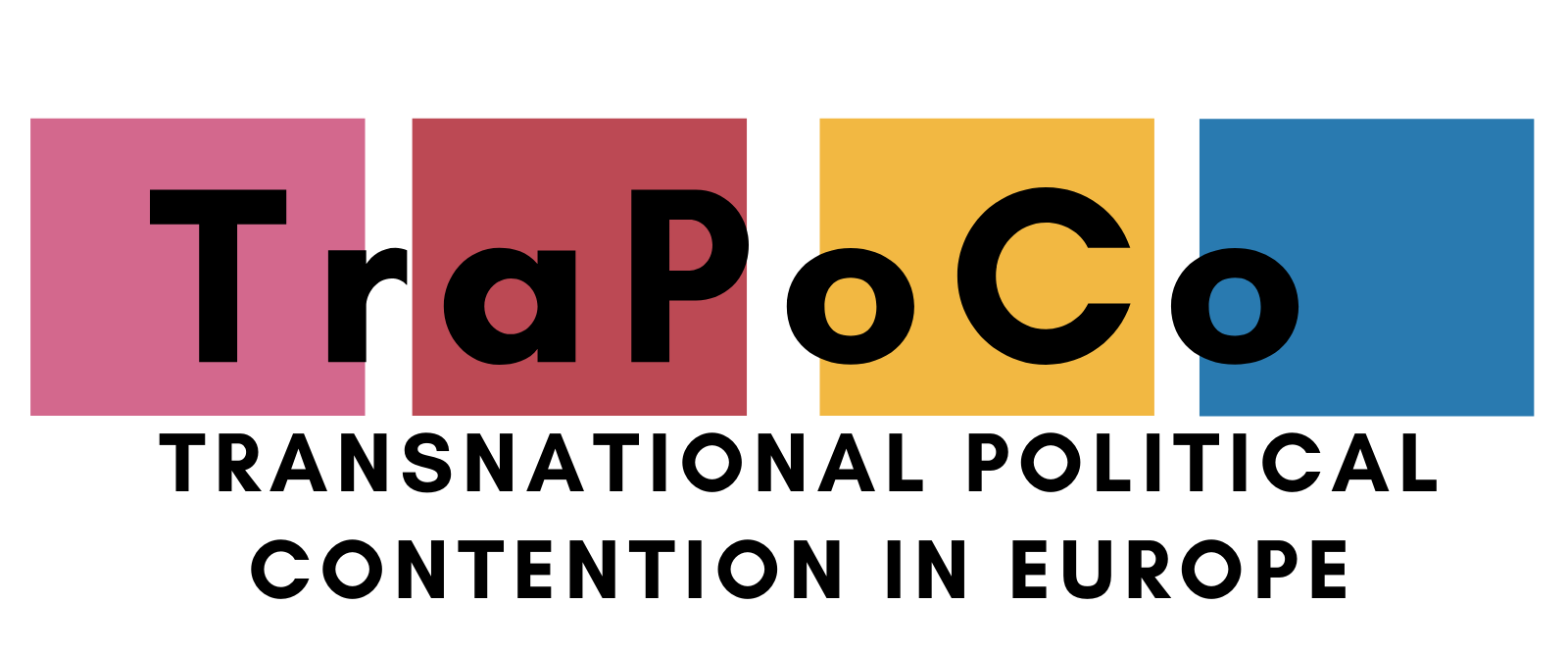
Foto: © Shutterstock Johanna Poetsch
A cura di: UCD, University College Dublin
Team di ricerca: Roland Erne, Graham Finlay, Imre Szabó, Darragh Golden
Transnational political contestation is central to labour politics in the European Union, given the transnational nature of both European regulation and corporate actors. In the framework of the ERC Project “Labour Politics and the EU’s New Economic Governance regime (European Unions), we have compiled a database of all transnational trade union actions from 1996 to 2019 (Nowak and Erne 2020).
This database helped us to identify two dominant types of transnational political contentious action in labour politics across Europe, namely actions
- of public service unions targeting EU institutions in response to the new vertical EU governance interventions affecting workers’ working conditions and the provisions of public services (Erne 2018, 2019, Jordan et al 2020).
- of private sector unions targeting multinational corporations in response to corporate restructurings affecting workers’ working conditions within the European Single Market and the Economic and Monetary Union (Erne 2008).
We will conduct a case study for each of these two paradigmatic situations.
We will examine transnational political contestation in labour politics, focusing on how and when trade unions target European Union institutions and multinational corporations, using a case study of each. We will also explore if and when human rights are invoked in these contestations and the relationship between human rights and social movements in the European sphere.
Contribution 1: Case study on transnational political action of public sector unions: Explaining the unequal success of European Citizens' Initiatives: The "Right2Water" and the "Fair Transport" campaigns
By Imre Szabó, Roland Erne, and Darragh Golden
Abstract: The Lisbon Treaty introduced a new instrument of European direct democracy, the European Citizens Initiative (ECI), which can potentially serve as a new tool in the hands of European trade union federations to, influence EU institutions and policy-making, provided the ECI is endorsed by at least one million EU citizens. To date, two European trade union federations, one in the water the other in the public transportation sector have launched ECI campaigns, which seek to politicise and resist commodification in the network industries. On account of organised labour occupying a strong structural position (Silver, 2003) in both industries, a similar outcome might have been expected. This, however, is not the case. Whereas the European Federation of Public Service Unions (EPSU) launched a successful Right2Water ECI, the European Transport Workers’ Federation (ETF) initiated a Fair Transport ECI; but failed to meet the quorum. These two ECI cases present an interesting puzzle and indicate that mobilisations of users and producers of public services do not always converge. The paper therefore aims to uncover the conditions that explain the different outcomes in the two cases. Here, we challenge the supposition that transnational labour alliances are ‘first and foremost about their immediate outcomes for workers’ (Brookes, 2019) and instead point to the interplay between actor-centred factors and structural factors as an explanandum.
Contribution 2) Case study on transnational economic actions of unions against multinationals:
Ryanair Pilots. Unlikely Pioneers of Transnational Collective Action
by Darragh Golden and Roland Erne
Abstract: National systems have provided unions with stronger institutional power resources by comparison to the EU structures governing the Single Market. In aviation, for example, the creation of the single market and the corresponding EU governance rules empowered Ryanair to defeat the pilot unions in all European countries one-by-one, regardless of the different national varieties of structural, associational, or institutional power resources they were relying on. Notwithstanding, in December 2017, a transnational group of union-related pilots, the European Employee Representative Committee (EERC), successfully coordinated strikes across Europe, forcing Ryanair to finally recognise trade unions. But why did an informal, transnational group of union activists succeed where all national unions across Europe had hitherto failed? This critical case study shows that the weakening of national unions does not necessarily undermine transnational collective action. Also, EU governance structures at times can provide workers with unexpected leverage that can be used to trigger transnational collective action. Hence, transnational union strength cannot be deduced from an aggregation of national power resources. It also depends on the ability of union activists to exploit peculiarities in the contradictory EU governance regime. By deciding to recognise national unions (instead of the EERC), however, Ryanair also returned industrial relations to the national level, thereby making the transnational coordination of strike action more difficult.
Contribution 3: Human Rights and Transnational Labour Contestation
By Graham Finlay and Roland Erne
A chapter exploring the role of human rights in labour politics and the interplay between human rights and collective action. By examining if, when and how human rights are invoked or claimed, we show how human rights can inform collective action and how collective action can lead to the re-evaluation of human rights in the context of EU law and policymaking. Examining transnational action will illuminate the importance of an emerging but contested understanding of human rights as active engagement, requiring substantive equality and involving a commitment to transparency, accountability and participation in the promotion and protection of individuals’ human rights. This research builds on earlier work on human rights policy coherence (Finlay and Ginsborg, 2017).
Bibliography:
- Erne, Roland. 2008. European Unions. Labor's Quest for a Transnational Democracy. Ithaca: Cornell University Press.
- Erne, Roland. 2018. Labour politics and the EU’s New Economic Governance regime (European Unions): A new European Research Council project. Transfer: European Review of Labour and Research 24(2): 237–247.
- Erne, Roland. 2019. 'How to Analyse A Supranational Regime That Nationalises Social Conflict? The European Crisis, Labour Politics and Methodological Nationalism', in: Nanopoulos, E. and Vergis, F. (eds.) The Crisis Behind the Euro-Crisis: The Euro-Crisis as Systemic Multi-Dimensional Crisis of the EU. Cambridge: Cambridge University Press, pp. 346-368.
- Finley, Graham and Lisa Ginsborg 2017 Coherence Versus Coherence: Normative Versus Structural and Interest-Based Coherence. In Wolfgang Benedek, et al. (eds.) European Yearbook on Human Rights. Wien and Graz: Neuer Wissenschaftlicher Verlag.
- Jordan, Jamie, Vincenzo Maccarrone, and Roland Erne 2020. 'Towards a Socialisation of the EU's New Economic Governance Regime? EU labour policy interventions in Germany, Italy, Ireland and Romania (2009-2019). British Journal of Industrial Relations, doi: 10.1111/bjir.12522
- Nowak, Jörg, and Roland Erne. 2020. ERC European Unions Transnational Labour Protest Database. Dublin: University College Dublin.
TraPoCo's Research
Each TraPoCo's partner will conduct its research strand resulting in the publication of scholarly and policy papers that will be published in leading journals in the various fields addressed by the research. Moreover, a final edited volume will be published at the end of the project (2023).








 To Top
To Top